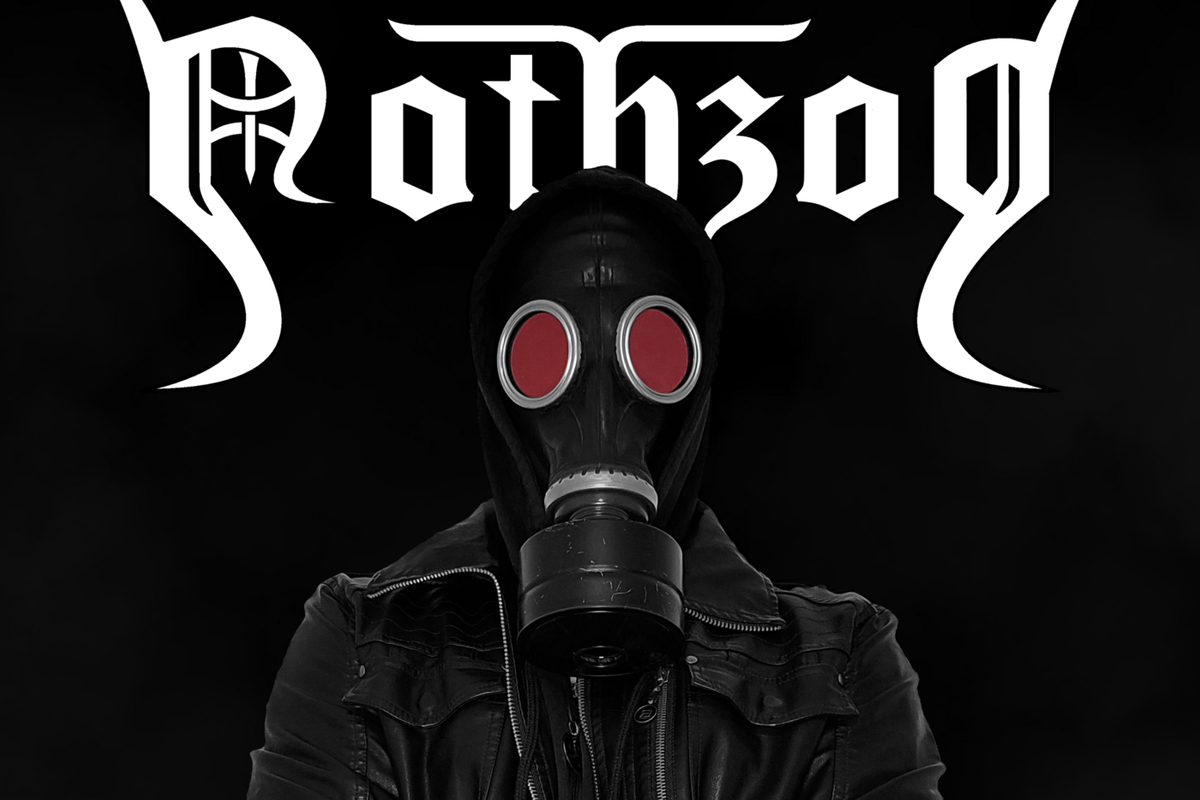Nothzog — Exitus Review
Nothzog is a German one-man Black Metal band. On 8th May 2025, Nothzog unleashed his independent full-length album, “Exitus,” A blackened descent into ritual noise and sonic precision.
The First Three Sins, The Summary
The Fourth Sin, Overall Discussion
The fog-draped gateway
From the moment the listener hits play, the experience begins with Kein Morgen. The opening track greets the listener with a mid-aggressive introduction that balances dread and pull — like a fog-covered battlefield where the listener is both spectator and subject. It sets the ritual tone with hypnotic restraint.
A Careful Descent into Chaos
As the listener continues their journey with the second piece, Vollige Ekstase, and the remaining seven pieces, where each song feels carefully composed, with a unique structure, not rushed or sloppy, but executed with careful attention to detail. The arrangements are complex yet balanced, holding a sense of purpose in every sound choice. Nothing seems improper or thrown together in a rush; instead, every note, beat, and silence is placed with precision. It’s clear that a lot of thought has gone into Exitus.
War Symbols & Erotic Submission
Nothzog‘s Exitus is drenched in the language of ritual, extremity, and abandon. It explores the dissolution of the self under violence and ecstasy, often intertwining dark themes of militarism, death and erotic submission. There’s a powerful thread connecting militarism, death, and eroticism — all woven into the music without glorification. Peiniger’s use of war-inflected symbolism — gas masks, storm rifles, titles like “Mit Gasmaske und Sturmgewehr” — (again) isn’t glorification but invocation.
These images are songs are not meant to promote conflict but to open a door into a mind where chaos, suffering, and transcendence collide. They act as mental weapons, forcing the listener into a state of altered consciousness, ushering the listener into a headspace where identity dissolves into conflict, suffering, and transcendence.
Sonic Structure & Ritual Engineering
Nothzog‘s Exitus is a nine-track, blackened fruit of art release, spread across over fifty minutes, full of contrasting sounds, moods, and tempos. The variation in each song keeps the listener engaged and always guessing what’s next. The entire album feels wrapped in a production style that leans into a raw, ritualistic sound. Yet, it’s also carefully surgically engineered, leaving no room for atmospheric fluff to hide the violence beneath. It’s not lo-fi in the traditional cassette-hiss sense or with rough edges.
Instead, it possesses a tactile roughness, a silent brutality that’s modern but still gritty enough to hit hard. The clarity of the mix doesn’t soften the menace; it amplifies it, making every element stand out in sharp relief.
Steel-Etched Precision & Trance Decay
Each track feels like a ritual etched in steel: precise and stripped of illusion. The instrumental composition and the devilmanship which are floored to perfection; drum work is relentless but controlled — no chaotic pounding, just military-like discipline. Blast beats hit like airstrikes, fierce and sudden, then give way to slow, almost ceremonial marches. The snares cut deep, like shrapnel ripping through the air. The guitars twist into scenes of devotional ruin, smeared with feedback that is disintegrating into noise.
There’s a ritualistic churn in the rhythm passages, as if each passage strives to evoke a trance-like state or collective trance decay, forcing the listener into a mental battlefield. The use of tremolo picking and droning dissonance add to this, creating a sense of overwhelming force and chaos.
Furthermore, think of the guitar not as narrators but as ceremonial noise-makers — smearing repetition with subtle variation to evoke trance decay. The guitar seems to chant and scream simultaneously, evoking a sense of losing and finding oneself at the same time.

Bass as Breath and Gravity
Nothzog‘s bass feels present, sometimes buried — but never absent. It holds the structure together like unseen mortar. Occasionally, it gets distorted; other times, it sounds thick and oppressive. The bass adds gravity, a weight that feels like an oppressive breath pressed against the back of your neck.
Vocal Abrasion and Haunting Clarity
Nothzog‘s Vocals thrive on abrasion, with clarity. Peiniger doesn’t use reverb-drenched howls or buried shrieks — his voice is deliberately present, projected like a commandant rather than an apparition. Often feels close-mic’d and breathy, with dry distortion that allows the German lyrics to punch through. There’s a range too: rasps, growls, whispered threats, and then there’s Sarah Jasmin Hahn’s vocals on Weißes Kleid, which act as the album’s spectral lament — clear, mournful, and chillingly dispassionate, she’s not an angel above the carnage; she haunts the carnage.
Thematic Fulcrum: Elend and Exitus
As mentioned, each song is different; songs like Elend, both musically and thematically, guitars here are particularly oppressive: layered tremolo riffs grind against each other in a kind of ritual abrasion, while the bass pulses like a heartbeat slowed by trauma. Exitus, a six-minute descent into ritualized finality—arguably the album’s thematic and emotional fulcrum of a mixture of clean acoustic, atmospheric soundscape, and a mixture of clean and harsh vocals that seem hollow—the word Exitus itself, Latin for “departure” or “death.”
A Ritual of Disciplined Chaos
Overall, Exitus creates a sonically brutal and ritualistic experience. It’s a carefully crafted fruit of art, where every element contributed to a sense of disciplined chaos. It’s a journey into dark symbolism, unflinching in its focus on violence, ecstasy, and the dissolution of the self.
Furthermore, it’s a record that challenges you! The listener is to confront uncomfortable truths, wrapped in a sound that is both raw and purposefully constructed. The album’s complexity and precise execution transform it from mere music into a ritual — an intense, immersive ritual where sound, imagery, and emotion collide.
Into Silence, Beyond Ritual
As the album nears its final breath, the closing piece — Mit Gasmaske und Sturmgewehr — draws the listener into a chamber of controlled collapse, where structure and suffocation spiral in measured unison. We want to give a shoutout to Nothzog for letting us review his album, Exitus. Now, we are going to conclude the review by talking about the final three sins and concluding the review.
The Fifth Sin, The Memorabilia

The Sixth Sin, The Artwork
The Seventh Sin, Disrelish
Nothzog
Peiniger — Everything
Sarah Jasmin Hahn — Guest Vocals on track eight